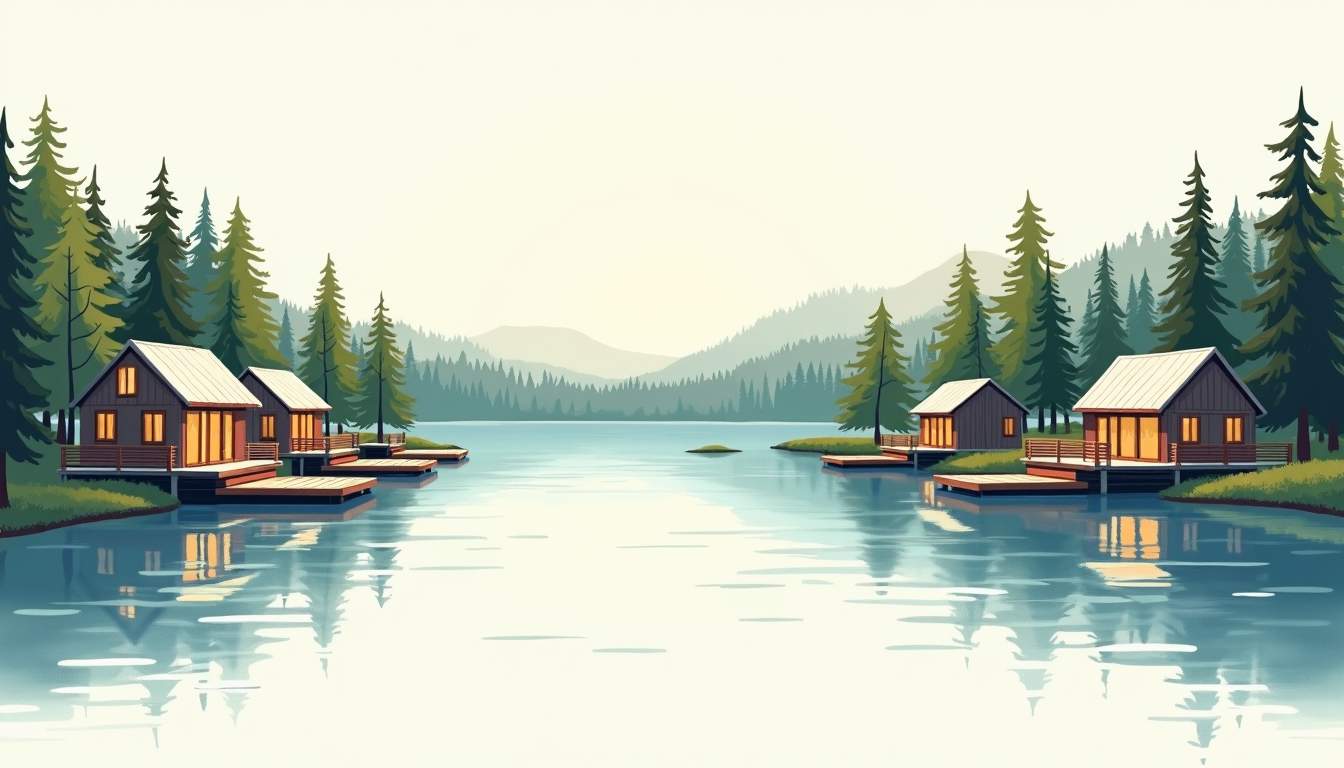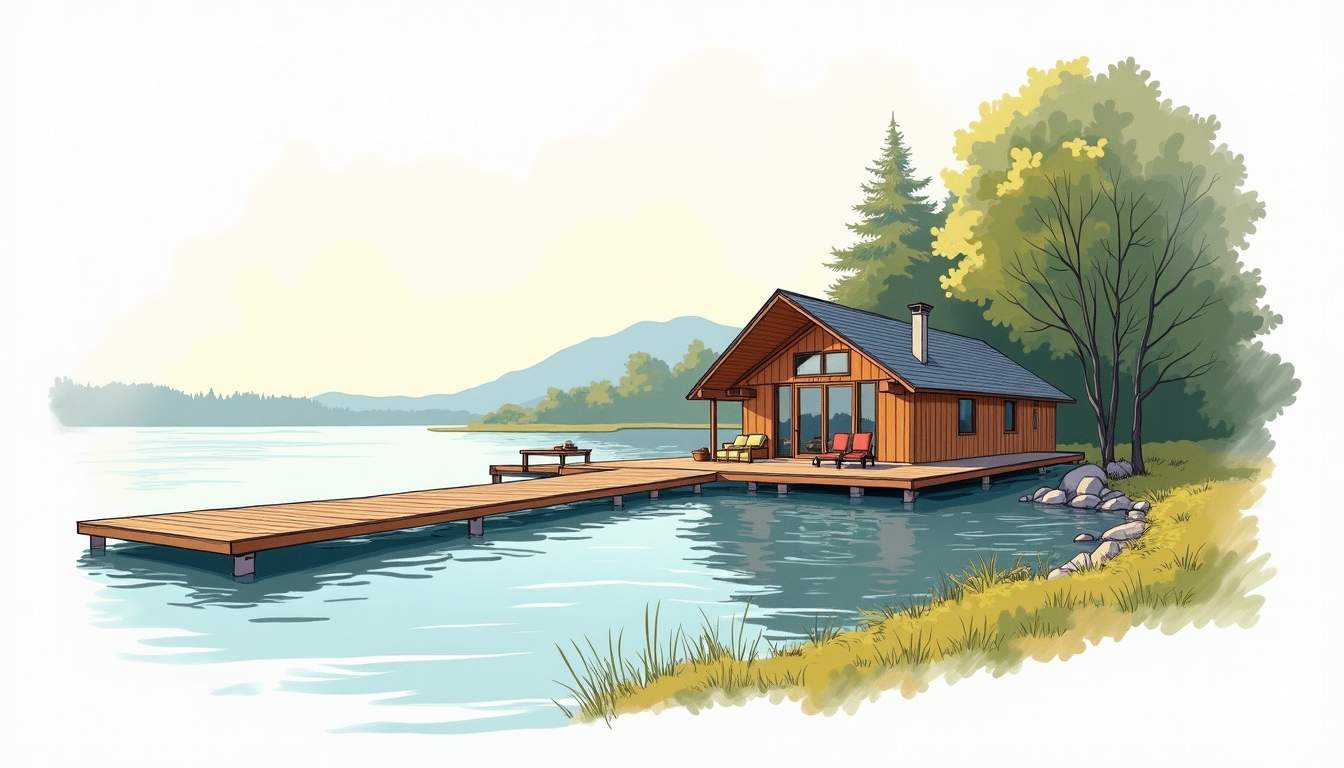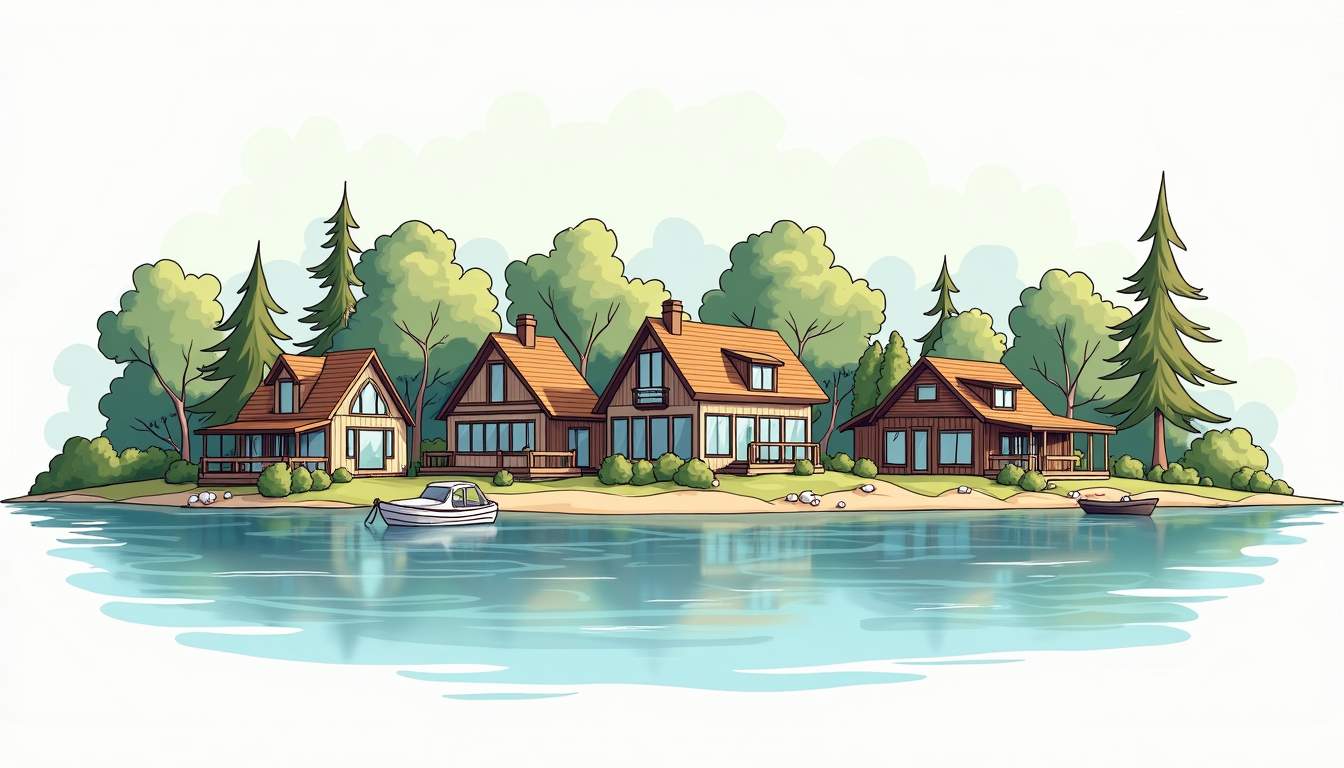
Planning a lakeside escape in Tennessee brings together rolling hills, clear water, and the relaxed pace of small-town life. For those seeking privacy, access to boating and fishing, and a place to watch sunrise over the water, homes with private docks are a top choice. This guide explores some of the best options in Tennessee, covering locations, amenities, buying and renting considerations, and tips for making the most of a lakeside property.
Owning or renting a home with a private dock changes the rhythm of everyday life. Water access becomes effortless: morning coffee can be followed by an early paddle, afternoons can be spent casting from the dock, and evenings often end with a quiet view of the sunset reflecting on the water. The convenience of having a boat launch steps away from the back door eliminates the need for crowded public ramps and long loading procedures.

Beyond convenience, a dock expands recreational options and adds value. Docks create a defined outdoor living area for socializing, sunbathing, and water sports. They also tend to be attractive features in resale and rental markets, drawing families and groups who prioritize active lake life. For many, the dock is what turns a beautiful house into a true lakeside retreat.
Moreover, docks serve as a personal gateway to nature’s tranquility, offering private spots for wildlife watching and quiet reflection. Early risers may spot osprey diving for fish or deer coming to the water’s edge, enhancing the connection to the surrounding environment. Maintenance and customization options allow homeowners to tailor dock designs to fit specific needs—whether it’s adding a boat lift, installing lighting for nighttime ambiance, or creating shaded sitting areas to escape the midday sun.
In addition to the personal benefits, a dock fosters community interactions among neighbors and visitors, often becoming the focal point for shared experiences like fishing contests, summer barbecues, or festive gatherings. This added social dimension enhances the charm and appeal of lakeside living, making a dock not just a functional structure but a catalyst for building lasting memories by the water.
Tennessee hosts a variety of lakes—some natural, many reservoir systems created by dams—and each has its distinct character. Picking the right lake depends on the desired balance between solitude and community, water activity offerings, and proximity to urban amenities.
Douglas Lake offers broad, deep waters and more than 500 miles of shoreline, making it ideal for large boats and watersports. The surrounding terrain mixes wooded coves and open bays, which provides both sheltered spots for fishing and wide-open areas for wake sports. Docked homes here often come with long, private slips and are popular among families who want both recreation and serene spots for relaxation.
Tellico Lake is known for its scenic beauty and excellent trout and bass fishing. The lake has a reputation for clear water and quieter coves, which makes it a favorite for those looking to escape the busiest recreational hubs. Dock-equipped properties typically emphasize privacy and picturesque views, with many homes designed to take advantage of the gentle topography and tree-lined shoreline.
Chickamauga Lake, formed by the Tennessee River system, blends convenience and variety. Close to Chattanooga and several small towns, it offers ample dining, entertainment, and service options while still delivering plenty of shoreline for private docks. The lake’s many arms and inlets create opportunities for exploration by boat without traveling far from home.
Center Hill Lake, nestled among rolling hills and cliffs near Smithville, is prized for dramatic scenery and clear water. Docked properties here suit buyers who prioritize scenic vistas and tranquility; coves often host cabins and custom homes with private slips. The area’s hilly terrain also results in homes with elevated views, making sunsets particularly spectacular from the shoreline.
Lakeside homes with docks come in a wide range of styles, from rustic cabins to modern custom houses. Some features are especially valuable for comfort, safety, and long-term enjoyment.
Docks can be floating, fixed, or hybrid. Floating docks rise and fall with water levels and are forgiving in areas with large fluctuations; they are often easier and less costly to install. Fixed docks are anchored to pilings driven into the lakebed and provide a more permanent, stable platform. Important dock features include covered slips for boat protection, secure mooring cleats, built-in lighting, and safe access ladders for swimmers.
Open floor plans that orient living areas toward the water are highly sought after. Large windows, decks, and screened porches create indoor-outdoor flow, maximizing views and natural light. Mudrooms or dedicated gear rooms are practical additions to handle wetsuits, fishing tackle, and outdoor gear. Consideration of storage for life jackets, kayaks, and water toys keeps both the house and dock functional and safe.
Tennessee’s climate brings warm summers and mild winters, but lakeside properties still require weather-ready features. Proper dock maintenance and materials that resist rot, UV degradation, and corrosion are essential. Homes benefit from durable siding, storm-rated windows, and good insulation for year-round comfort. For properties in colder pockets, winterizing systems for docks and boats should be part of the plan.
Deciding whether to buy or rent a dock-equipped home depends on lifestyle, finances, and how often the property will be used. Seasonal renters often favor docked homes for vacations and family gatherings without the responsibilities of ownership. Short-term rentals can provide a wide selection of homes with amenities—private docks, hot tubs, docks with swim platforms—without long-term commitments.
Purchasing a lakeside home is an investment in both lifestyle and property. Ownership allows customization—building a personal dock, landscaping the shoreline, and adding utility improvements. It also provides opportunities for rental income when the property is not in use, but comes with ongoing costs like maintenance, property taxes, and homeowners’ insurance that specifically covers water-related liabilities.
Budgeting for a docked property includes upfront purchase costs and recurring expenses. Waterfront premiums vary widely by lake and by the level of dock access. Insurance costs may be higher because of water exposure and boat-related liabilities. Additionally, if the property is intended for rental income, local regulations, HOA rules, and dock use restrictions must be factored into revenue projections and operating plans.
Shoreline properties often fall under specific permitting rules. Dock construction, repair, or expansion may require county or state permits, especially when changes could affect public waterway access or local ecosystems. Environmental considerations include protecting shoreline vegetation to prevent erosion, controlling stormwater runoff, and managing septic systems. It’s wise to verify permitted uses and to review easements that could affect dock placement and access.
Owning or staying in a home with a dock unlocks activities that become part of daily life. Planning for these activities improves safety and enjoyment.

Popular recreation includes boating, fishing, paddleboarding, and swimming. Keeping a well-stocked safety kit onboard and at the dock—life jackets in appropriate sizes, a throwable flotation device, a first-aid kit, and emergency signaling options—provides peace of mind. Swimming areas should be clearly delineated away from boat traffic, and docks should display simple safety rules to protect children and guests.
Dock-equipped homes excel at gatherings. Consider adding comfortable outdoor seating, ambient lighting for evening events, and grilling stations near the water. Covered areas on the dock or a boathouse can provide shade and protection during sudden weather changes. Good outdoor speakers, integrated storage for games and water toys, and easy access to restroom facilities make hosting seamless and enjoyable.
Lakeside properties offer intimate encounters with wildlife—herons, ospreys, deer at dawn, and occasional otters or beavers. Landscaping with native plants supports local ecosystems and reduces maintenance, while also preserving natural views. Maintaining a respectful distance and avoiding feeding wild animals helps keep the shoreline healthy and the local wildlife thriving.
An inspection for a lakeside home should cover both the house and the dock. Experienced inspectors can identify common issues that may not be obvious at first glance.
Check for structural integrity: examine pilings, decking boards, hardware, and connections for signs of rot, rust, or movement. Floating docks should have intact flotation units and secure attachment points. Look for electrical wiring and lighting that meets safety standards, and confirm the presence of non-slip surfaces and secure railings where needed. Also, evaluate the approach from land to dock to ensure access is safe and stable.
Inspect the shoreline for erosion, retaining walls, or riprap conditions that may require future repair. Review drainage patterns to ensure runoff is not directed into the lake. For the home, confirm that foundations and lower-level structures are protected from moisture and have proper grading. Verify that septic systems are properly maintained and permitted, especially if the property is used as a rental.
Finding the ideal dock-equipped home in Tennessee means balancing needs: recreational access, privacy, community amenities, and long-term investment potential. Whether the goal is a weekend escape, a family vacation hub, or a full-time lakeside residence, Tennessee’s lakes offer a range of options from lively, activity-filled shores to secluded coves.

Careful planning—considering dock types, local rules, climate resilience, and intended use—helps ensure a satisfying lakeside experience. Once these elements align, the dock becomes more than a structure; it becomes the gateway to a calmer routine, memorable gatherings, and countless mornings and evenings spent at the water’s edge.
Embrace the ultimate lakeside lifestyle with Tennessee National, a premier gated community offering luxury homes with private marina access and breathtaking water views. Enjoy resort-style amenities including a Greg Norman Signature Golf Course, waterfront dining, and vibrant social clubs—all set amid Tennessee’s stunning natural beauty. Whether you desire a move-in ready home or a custom build that complements your lakeside dreams, Tennessee National is your gateway to unforgettable moments by the water. Schedule a Private Tour today and start living the lakeside retreat lifestyle you’ve been dreaming of.